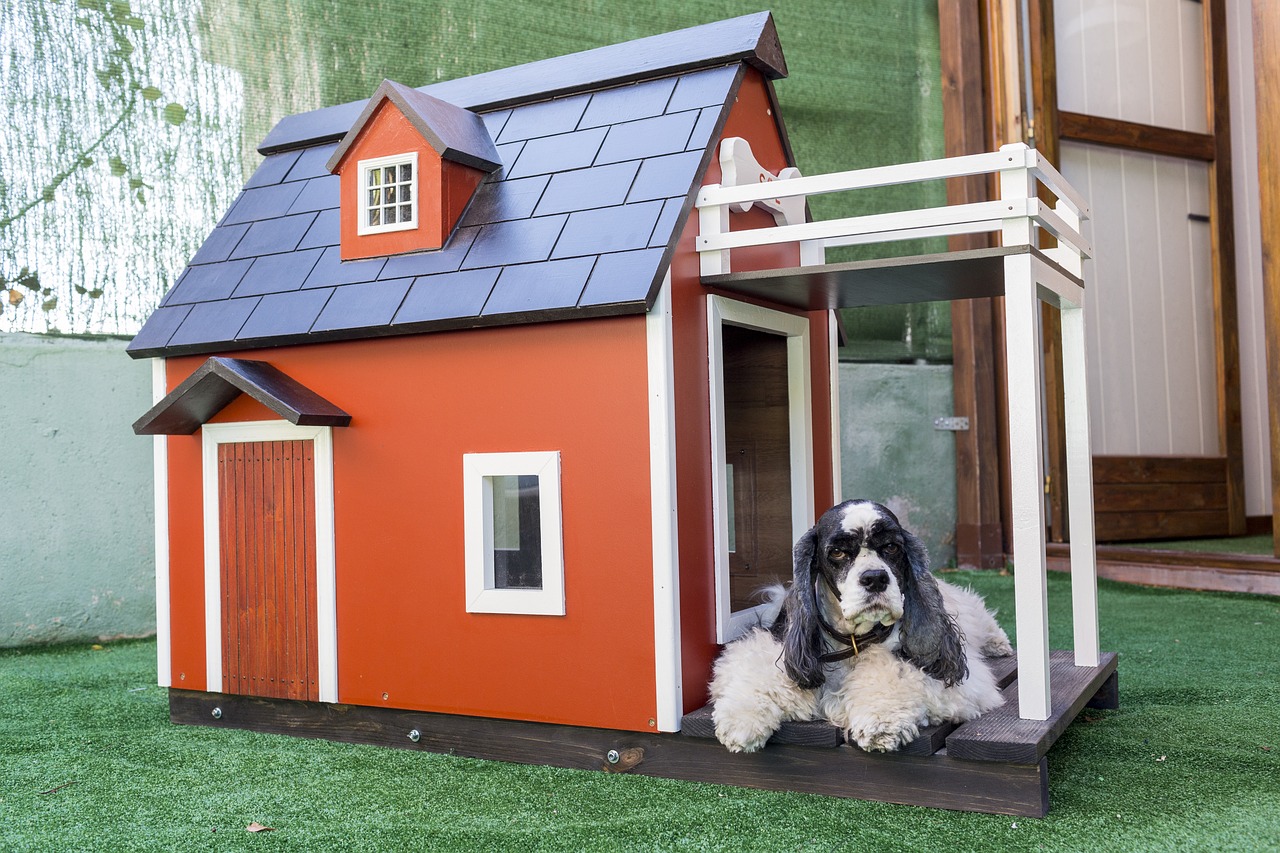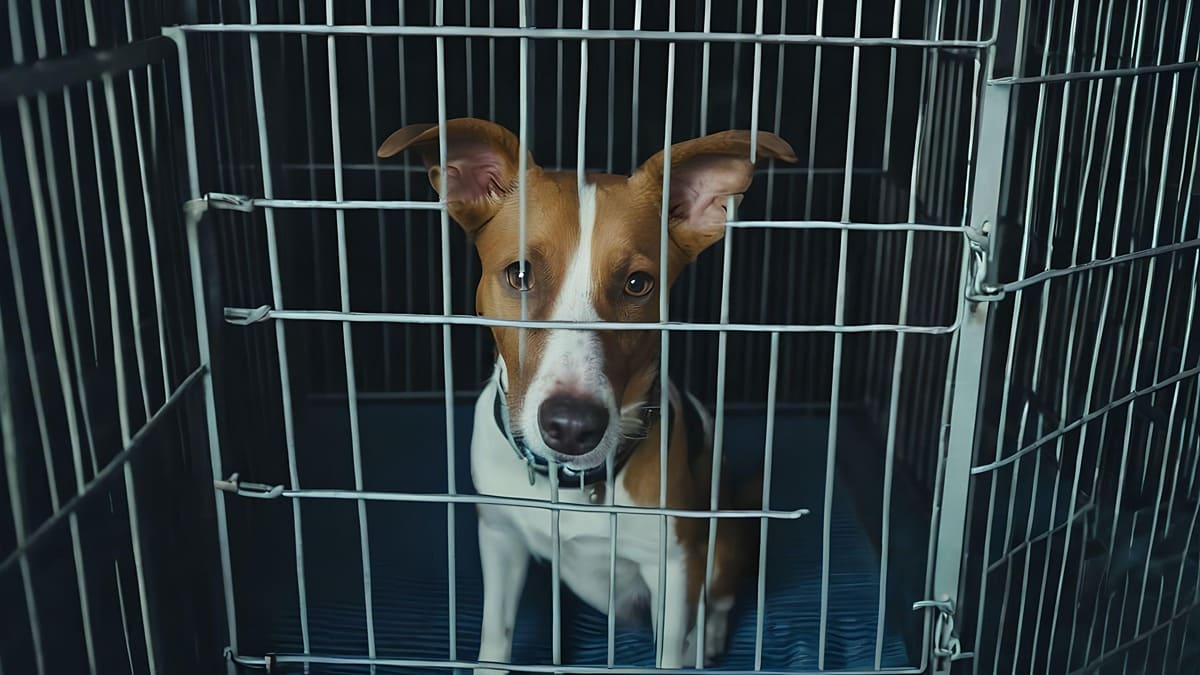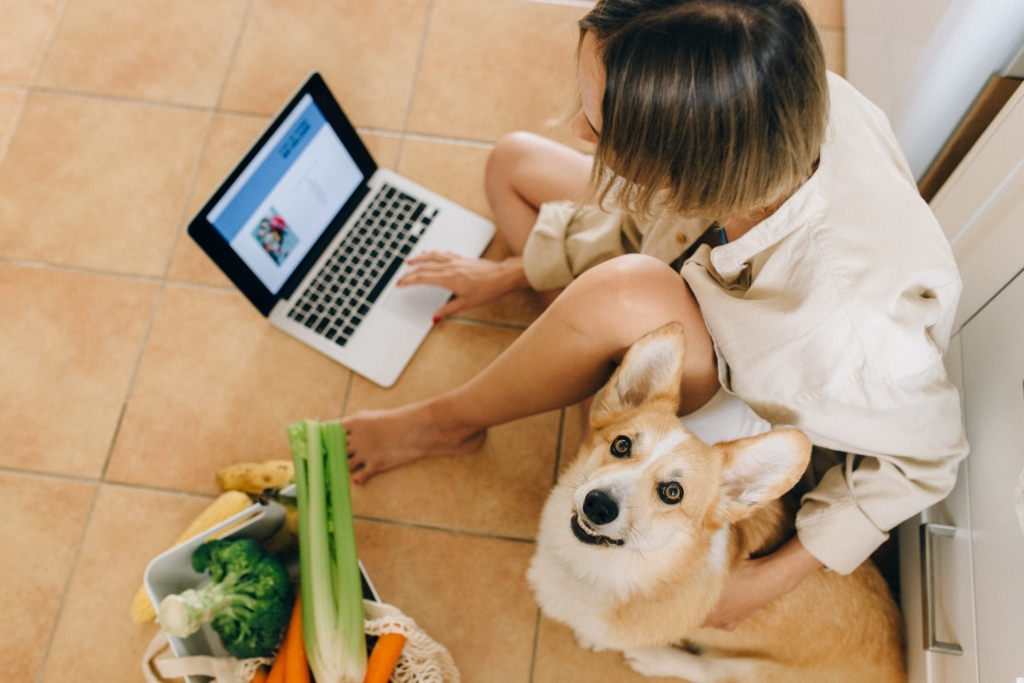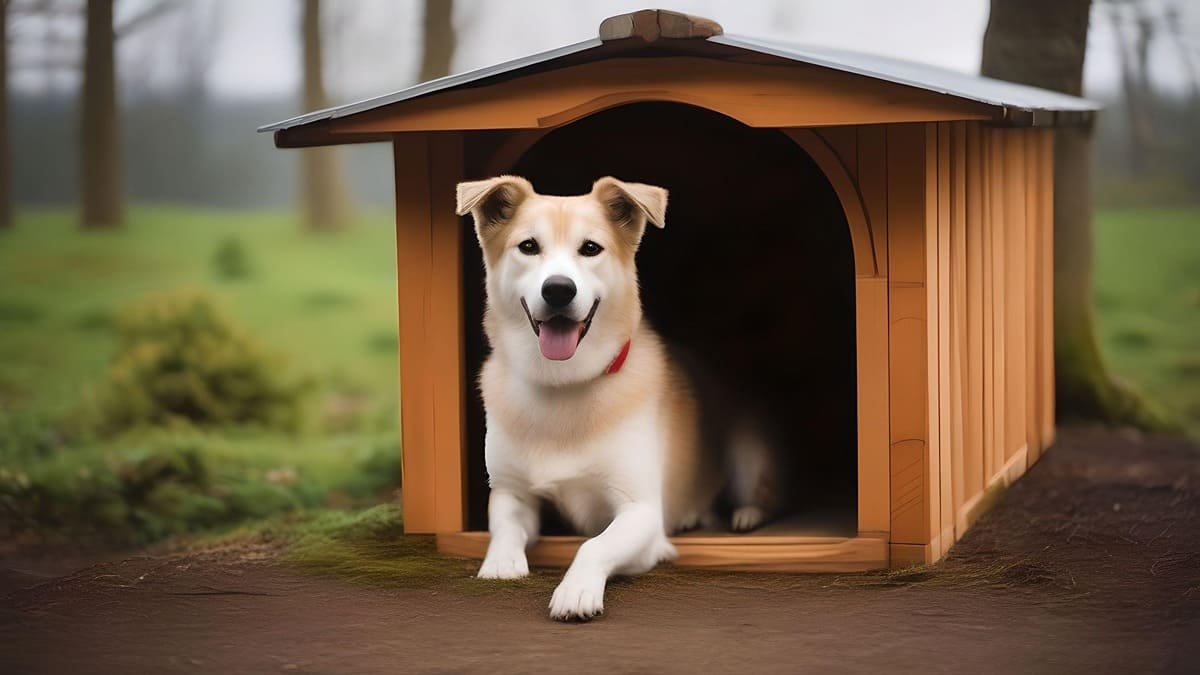A Dog Lives in a? | Challenges, Care Tips and Advantages
A dog is a part of the family as well as a pet. Our lives are made happier, warmer, and more friendly by them. Having a dog sometimes means having a devoted friend that is there to comfort and support you whenever you need it. But prior to adopting a dog into your home, there are a lot of things you need to think about because caring for a dog is a major duty. In this post, we’ll discuss what it means to have a dog living in your house, the duties required, the advantages of owning a dog, and some advice for keeping your dog happy and healthy.
A Dog Lives in a
A Dog Lives in a “Kennel”.
Both the dog and the owner of the dog may feel depressed and lonely when the dog is living in a kennel. While kennels are frequently utilised in short-term circumstances, including when travelling or transferring to a new house, some dogs are made to live in kennels for an extended amount of time. The difficulties of keeping a dog in a kennel will be discussed in this article, along with advice on how to make their stay as pleasant as possible.

Challenges of Having a Dog Live in a Kennel
There are Several Challenges of Having a Dog Live in a Kennel, Such as:
Lack of Space and Exercise:
Lack of space and exercise is one of the major problems with keeping a dog in a kennel. Dogs rarely have room to run and play in kennels since they are frequently small and congested. Boredom and dissatisfaction from this might result in behavioural problems including excessive barking and destructive chewing. Inactivity can also cause health difficulties like weight and muscle imbalances.
Limited Socialization and Interaction with Humans and Other Animals:
Lack of socialisation and interaction with people and other animals is another issue with keeping a dog in a kennel. Dogs are social animals and need interaction with their owners and other canines on a regular basis to stay mentally and emotionally healthy. Aggression towards humans and other dogs as well as anxiety might result from a lack of socialisation.
Increased Stress and Anxiety:
For dogs, living in a kennel can be uncomfortable and anxiety-provoking. Dogs may feel worried and stressed due to other dogs’ constant barking and loudness as well as the strange surroundings. Numerous behavioural problems, including fearfulness and violence, may result from this.
Potential for Health Problems:
Finally, living in a kennel can lead to a variety of health problems for dogs. Lack of exercise and socialization can lead to obesity and joint issues, while stress and anxiety can weaken the immune system, making dogs more susceptible to illness and disease.
Tips for Making a Dog’s Experience in a Kennel More Comfortable
Here are some Tips for Making a Dog’s Experience in a Kennel More Comfortable:

Provide Plenty of Toys and Mental Stimulation:
Puzzle toys, chew toys, and interactive games can all keep your dog busy and cognitively challenged while preventing boredom and discomfort.
Take Them on Regular Walks and Provide Opportunities for Exercise:
It’s important to take your dog for frequent walks and to provide opportunities for exercise despite the cramped conditions in a kennel. Playing fetch, taking hikes, or visiting a dog park are some examples of this. Your dog can benefit from regular exercise by being emotionally and physically healthy.
Visit Them Often and Spend Time Playing and Bonding with Them:
Regular visits from their owner can provide comfort and help alleviate stress and anxiety. Spending time playing and bonding with your dog can also help strengthen your relationship and improve their overall well-being.
Ensure They Have a Comfortable Sleeping Area with Bedding and Blankets:
Providing your dog with a comfortable sleeping area can help them feel safe and secure. This can include a comfortable bed, blankets, and toys.
Provide a Healthy and Balanced Diet to Prevent Obesity and Other Health Issues:
Providing your dog with a healthy and balanced diet is important to prevent obesity and other health issues. Speak with your veterinarian to determine the best diet for your dog’s specific needs.
Ensure They Receive Regular Veterinary Care to Prevent and Treat Any Health Problems:
Regular veterinary care is important to prevent and treat any health problems that may arise. This includes regular check-ups, vaccinations, and preventative care.
Responsibilities of owning a dog
Taking care of a dog is a big responsibility, and it’s important to make sure you’re up for the task before bringing one into your home. Here are some of the key responsibilities of owning a dog:

- Providing food and water: Just like humans, dogs need to eat and drink to stay healthy. Make sure you provide your dog with a balanced diet that meets their nutritional needs.
- Exercise: Dogs need regular exercise to stay healthy and happy. This can include walks, runs, or playtime in the yard.
- Grooming: Regular grooming is important for your dog’s health and well-being. This can include brushing their coat, trimming their nails, and cleaning their ears.
- Training: Proper training is essential for a well-behaved dog. This can include house training, obedience training, and socialization.
- Veterinary care: Regular check-ups with a veterinarian are important for your dog’s health. They should receive vaccinations, and preventative medications, and be treated promptly for any illnesses or injuries.
Benefits of having a dog
Despite the responsibilities involved, there are many benefits to having a dog in your home. Here are just a few:

- Companionship: Dogs are known for their loyalty and affection, and having a dog in your home can provide a sense of companionship that is hard to replicate.
- Reduced stress: Studies have shown that spending time with a dog can reduce stress and anxiety.
- Increased physical activity: Owning a dog often means spending more time outside and engaging in physical activity, which can have numerous health benefits.
- Improved social life: Dogs are a great conversation starter and can help facilitate social connections.
Tips for making sure your dog is happy and healthy
If you’ve decided to bring a dog into your home, here are some tips for making sure they’re happy and healthy:
- Provide a balanced diet: Make sure you’re providing your dog with a balanced diet that meets their nutritional needs. This can include a mix of high-quality dog food and treats.
- Exercise regularly: Dogs need regular exercise to stay healthy and happy. Make sure you’re providing your dog with enough exercise based on their breed, size, and age.
- Groom regularly: Regular grooming is important for your dog’s health and well-being. Make sure you’re brushing their coat, trimming their nails, and cleaning their ears on a regular basis.
- Training: Proper training is essential for a well-behaved dog. Consider enrolling your dog in obedience classes or working with a professional trainer to ensure they’re well-behaved.
- Veterinary care: Regular check-ups with a veterinarian are important for your dog’s health. Make sure your dog is up-to-date on vaccinations and preventative medications, and be sure to address any health concerns promptly.
Conclusion:
Having a dog in your home comes with a lot of responsibility, but it can also be extremely rewarding. You can help ensure your dog is happy and healthy for years to come by providing adequate care, attention, and training. Remember, a dog is a member of the family and should be treated as such. You may build a deep and meaningful friendship with your animal companion that will last a lifetime if you have patience, love, and dedication.
Frequently Asked Questions on dogs:
-
What breed of dog is best for families?
Dogs with multiple breeds, such as Labrador and Golden retrievers, Beagles and Bulldogs, are excellent family pets. It’s important to conduct research and pick a breed that suits the demands and lifestyle of your family.
-
How much exercise does a dog need?
The amount of exercise a dog needs depends on their breed, size, and age. Generally, dogs need at least 30 minutes to an hour of exercise each day, but some breeds may require more.
-
How often should I take my dog to the veterinarian?
Dogs should have an annual check-up with a veterinarian, but they may need to go more often if they have health issues or are older.
-
Can dogs be left alone during the day?
Dogs can be left alone during the day as long as they are given enough food, water, and exercise and are not left alone for an extended period of time. To give your dog some company and exercise if you work long hours, think about hiring a dog walker or doggie daycare.
-
How do I introduce my dog to new people or animals?
Introducing your dog to new people or animals should be done slowly and carefully. It’s important to supervise the interaction and make sure your dog is comfortable and relaxed. Positive reinforcement and rewards can also help make the experience more enjoyable for your dog.
Recommended to A Dog Lives in a:





























